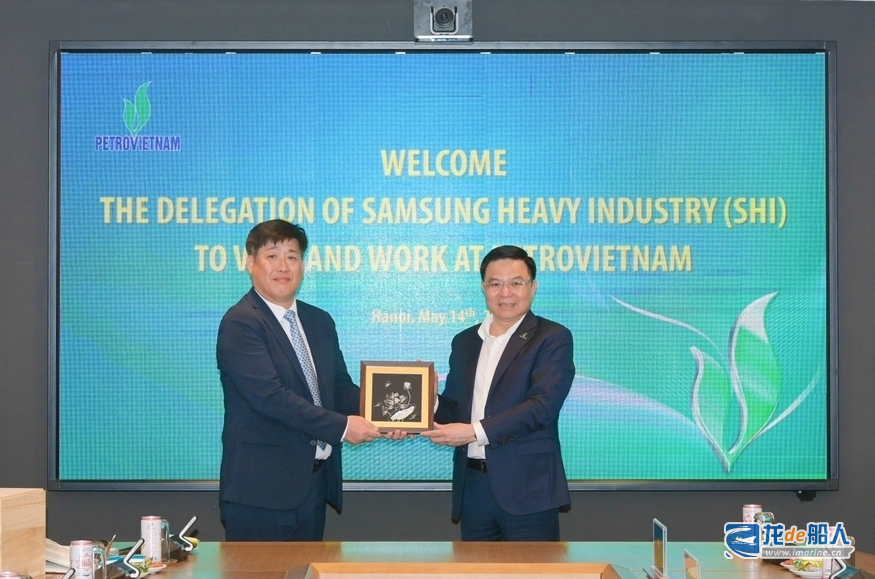Given the advantages of Vietnam’s shipbuilding industry, including low labor costs and a mild climate, Samsung Heavy Industries has long regarded the region as a key strategic area to replace the capacity of Chinese shipyards. Industry sources have repeatedly reported that Samsung Heavy Industries is considering establishing a new shipyard in Vietnam, aiming to enhance its global competitiveness by tapping into local production partners.

Vietnamese media reported that from November 5 to 6 local time, Samsung Heavy Industries attended the “Korea-Vietnam Ocean Technology Collaboration International Conference 2025 (KVOTC 2025)” held at Long An International Port in Ho Chi Minh City, aiming to deepen cooperative ties with local Vietnamese enterprises.
This conference aims to align with Vietnam’s vision for marine industry development, support Korean shipbuilding and marine enterprises in expanding into the Vietnamese market, and identify cooperation opportunities between the two nations. Participants include representatives from over 30 leading Korean industrial enterprises, key stakeholders, and strategic partners in the energy and marine sectors, such as the Korean Consulate General in Ho Chi Minh City, Busan Port Authority, and Vietnam Maritime Administration.
Reports indicate that Samsung Heavy Industries shared insights on the current state and future direction of the maritime industries in Korea and Vietnam during the meeting, seeking potential collaboration opportunities and identifying shipbuilding partners. The company aims to establish Vietnam as a global production base and advance its strategy for production diversification.
Samsung Heavy Industries believes that shipbuilding in Vietnam offers triple benefits: circumventing stricter Chinese regulations, reducing production costs and enhancing competitiveness, and expanding its global network, while also supporting the development of Vietnam’s domestic shipyards. To this end, the shipbuilder is considering building a new shipyard in Vietnam primarily producing small and medium-sized ships, describing it as part of a global operations strategy to break through its existing outsourcing strategy with China, improve cost competitiveness and circumvent US export controls.
In May this year, Samsung Heavy Industries and Vietnam National Industry and Energy Group (PetroVietnam) established a partnership in the shipbuilding sector. The two parties plan to collaborate on modern ship model development and shipbuilding projects.
As part of its efforts to reduce reliance on subcontracting from Chinese shipyards, Samsung Heavy Industries will begin its collaboration with Vietnam by outsourcing shipbuilding projects. Samsung Heavy Industries has decided to assign the construction of three conventionally fueled Suezmax tankers, ordered by British shipowner Zodiac Maritime, to PVSM Shipyard.
PVSM is a shipyard under Vietnam National Industry – Energy Group (PetroVietnam). The latter has already reached a shipbuilding cooperation agreement with Samsung Heavy Industries in May, with both parties expected to undertake modern ship model development and shipbuilding projects. This subcontracted shipbuilding project forms part of their cooperative agreement.
It is understood that Samsung Heavy Industries has a long history of shipbuilding cooperation with Vietnam, with plans to establish a new shipyard in the country dating back to 2014. At that time, to prepare for the construction of the new facility, Samsung Heavy Industries conducted on-site inspections in Vietnam and advanced a shipyard development project called “Project V”.
Samsung Heavy Industries explained its decision to build a new shipyard rather than acquire an existing local facility, stating: “Building a new shipyard offers greater advantages in enhancing construction efficiency compared to acquiring an existing local facility.”
The Korean industry also believes: “If Samsung Heavy Industries establishes a facility in Vietnam, it will enhance price competitiveness and potentially secure orders for small-to-medium bulk carriers and tankers that were previously unattainable. Although the Vietnam shipyard construction plan took a long time to materialize due to past financial difficulties, it has now achieved profitability and is expected to accelerate the process.”
Currently, Samsung Heavy Industries is accelerating its global production base strategy: subcontracting the construction of crude oil tankers at bases in China, Vietnam, and other locations, while focusing on transforming its Geoje shipyard into a hub for high-value-added ships. This includes concentrating on building LNG carriers, eco-friendly container ships, and FLNG units.


